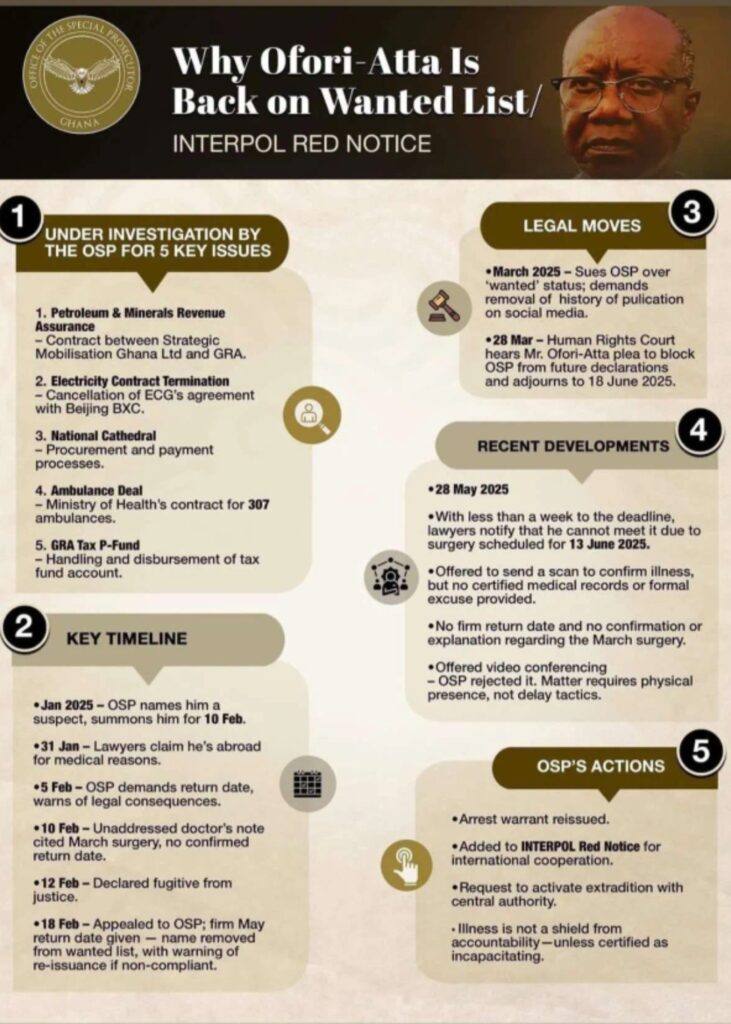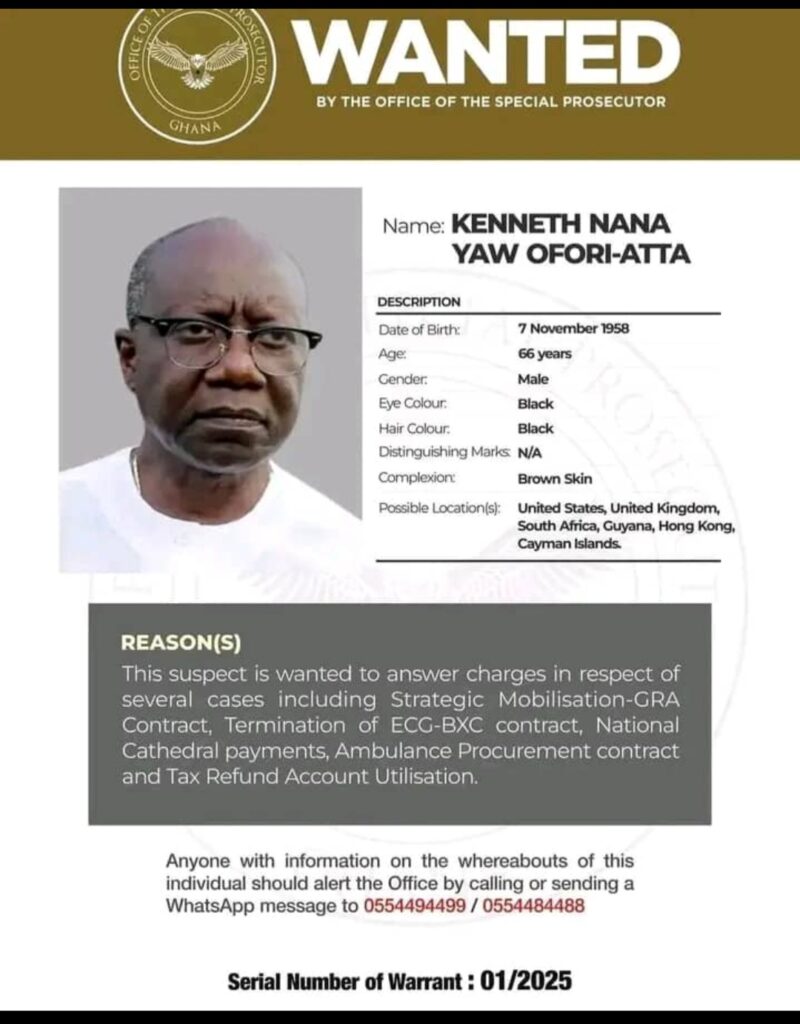The Office of the Special Prosecutor (OSP) has officially declared former Minister for Finance, Mr. Ken Ofori-Atta, a fugitive from justice, following his failure to appear before the office for ongoing investigations into multiple allegations of financial misconduct.
The declaration has triggered the initiation of an INTERPOL Red Notice, intended to facilitate his international arrest and extradition. Mr. Ofori-Atta, who served as Finance Minister from 2017 to early 2024, is at the centre of a series of investigations relating to major financial and contractual decisions undertaken during his tenure.
The cases under scrutiny include revenue assurance contracts involving Strategic Mobilisation Ghana Limited and the Ghana Revenue Authority, the controversial termination of an agreement between the Electricity Company of Ghana and Beijing Xiao Cheng Technology (BXC), and alleged procurement breaches and financial irregularities connected to the National Cathedral project.

In February 2025, the OSP initially classified Mr. Ofori-Atta as a wanted person after several unsuccessful attempts to secure his cooperation with the investigative process. However, he was temporarily removed from the list after his legal representatives assured the Special Prosecutor that he would return to Ghana and present himself to the authorities no later than June 2, 2025.
His failure to meet that obligation has now prompted a decisive response from the OSP. In a strongly worded statement, the Special Prosecutor, Mr. Kissi Agyebeng, reaffirmed the requirement for Mr. Ofori-Atta to appear in person and dismissed proposals for virtual interrogations. He maintained that individuals under criminal investigation do not reserve the right to dictate the terms or methods of inquiry. “A suspect does not determine how an investigation should proceed. This office will not submit to convenience or delay in matters of national accountability,” Mr. Agyebeng declared. “Mr. Ofori-Atta’s conduct is wholly unacceptable and a blatant affront to law enforcement and the criminal justice system. This ends now.”
The INTERPOL Red Notice issued against Mr. Ofori-Atta is a formal request to international law enforcement bodies to identify, locate, and provisionally arrest him, pending extradition proceedings.
While not an arrest warrant in itself, the notice significantly limits his freedom of movement across jurisdictions that are members of INTERPOL, and it heightens the likelihood of his apprehension should he be located outside Ghana’s borders.
Legal analysts interpret the OSP’s decision as a significant step in enforcing anti-corruption laws, particularly in cases involving political officeholders.
The invocation of international mechanisms such as the Red Notice signals a new level of resolve by the prosecutorial authorities and reinforces the idea that former ministers and high-ranking officials cannot evade legal responsibility by relocating outside the country. The implications of this action are far-reaching.
Politically, it casts a long shadow over Mr. Ofori-Atta’s legacy and raises questions about the efficacy of internal government oversight during his time in office. Institutionally, it sends a clear message that the OSP is prepared to pursue justice beyond Ghana’s borders and that no individual, regardless of prior office or stature, is beyond the reach of the law.
As at this time, the whereabouts of Mr. Ofori-Atta remain unknown, and no formal response has been issued by his legal team in reaction to the Red Notice.
However, the reclassification of his status and the launch of international efforts to secure his arrest reflect a hardening posture by the OSP and a willingness to escalate matters when cooperation is not forthcoming.
This case is likely to serve as a precedent for future investigations involving public officials and may influence the approach of other anti-corruption and regulatory institutions across the country.
Whether the process leads to a successful extradition and trial remains to be seen, but the developments thus far have already redefined the boundaries of institutional accountability in Ghana.
The coming days will be critical, as international agencies begin to act on the Red Notice and Ghanaian authorities prepare for the next phase of what is poised to be one of the most consequential legal sagas in recent political history.
The public and political class alike are now watching closely as the nation grapples with the challenge of enforcing justice in a climate of growing demand for transparency and integrity in governance.

